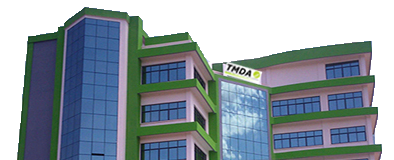Frequently Asked Questions
There are 16 official ports of entry as per the existing regulations. Click here for more details.
Various studies have been conducted from time to time in line with other TMDA systematic enforcement measures including Post Marketing Surveillance (PMS) activities, whereby the market is considered to be generally safe.
For example, Mziray et al., (2017: 6:1) Pharmaceutical Regulatory Affairs Journal, a study conducted by TFDA (now TMDA) with the aim of monitoring the quality of registered anti-malarial medicines circulating on the market in Tanzania Mainland.
The results showed that a total of 1,444 samples of oral solid formulations from different types of anti-malarials were sampled. Out of these, 132 (9.1%) failed labelling requirements of product information. A high percentage of samples passed the identification test by TLC (97.9%) and the disintegration test (99.8%). A small failure rate of 4.8% (7/145) was observed in confirmatory testing, from which only one of the samples (i.e. quinine sulphate 300 mg tablets) was confirmed to be falsified.
Yes, TMDA takes several measures in promoting the pharmaceutical industries as follows:
- Establishment of a special desk which can provide assistance to investors,
- Provision of technical support whenever required,
- Reduction in time for registration of medicines and premises,
- Conducting stakeholders meeting and distribution of information, education and communication (IEC) materials; participating in different exhibition and events to sensitize companies to invest in Tanzania,
- Provision of statistics and advice related to pharmaceutical products to investors, and
- Frequent training of technical staff from the manufacturing industries.
Only medicines that are recommended for registration directly by TMDA or under EAC harmonization initiatives are registered in Tanzania. However, medicinal products which are registered by other EAC NMRAs (including Kenya and Uganda) outside the EAC harmonization programs should be applied for registration in Tanzania.
Yes, a Free on Board (FOB) fee of 0.25% is charged on the value of consignment click here for more details
Donation of products that meet standards of quality, safety and efficacy; and the requirements stipulated in the Guidelines for Medicines and Medical Supplies Donations for Tanzania Mainland issued by the Ministry of Health Community Development, Gender, Elderly and Children, are accepted by TMDA click here for more details.
Recall may be initiated by TMDA, manufacturer, registrant (or marketing authorization holder) after receiving complaints from customers or identification of products which are potentially life threatening through post marketing surveillance activities. Based on the relative health risk of defective products, the recall process is categorized in three classes. For example, Class 1 recall is for products with highest risk and the recall should be completed within a period of 14 days click here for more details.
TMDA accepts disposal methods as proposed by the Authority and the National Environment Management Council click here for more details.
There are various types of inspections which are done by TMDA, as follows:
- Routine inspection;
- Concise inspection;
- Follow-up inspection;
- Special inspection; and
- Any other types as the Authority may designate
Yes, TMDA has a Whistle Blowing Policy which facilitates the process of informing TMDA about any suspected serious misconduct or any breach or suspected breach of TMDA Act or Regulations that may adversely impact TMDA or be a threat to public interest or national security click here for more details.

